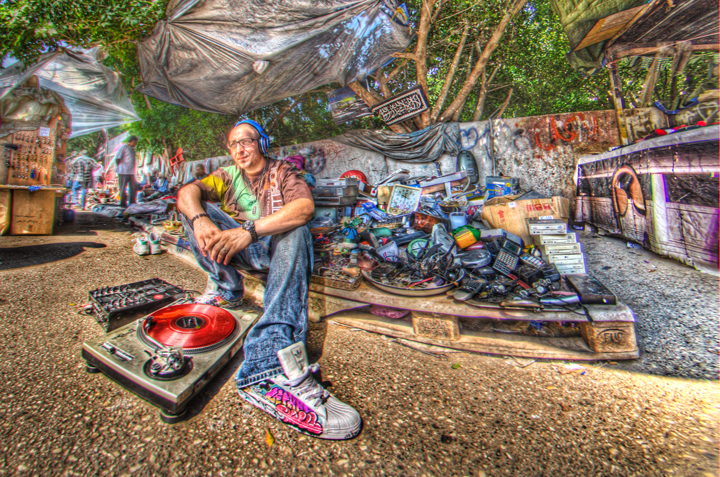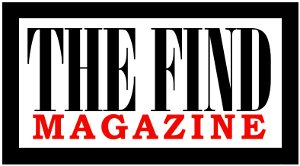10 Questions with DJ Lethal Skillz
BY Agnes, April 13, 2012We chatted with one of the Middle East’s most well-known and respected DJ-producers. Here’s what he has to say about using the internet as a tool for proliferating international sounds, the value of cross-cultural collaborations, and some of the influencers he’s gotten to work with over the years.
1. How would you describe your relationship with the music you create?
My musical journey goes back to when i was a little kid sittin’ in shelters with my mom and dad in Beirut during the first Israeli invasion of Lebanon around 1982. The parents used to play music and even live instruments like the Oud in the shelters to make us ignore the sound of war upstairs. That kind of impacted me throughout my whole life, music became my escape.
I started B-boying when I was eight, messing around with kids on the streets around the boom of the movie “Breakin” with Turbo and his broom dance. One day I saw Herbie Hancock’s video “Rock it” on TV. When Grandmaster DST started moving the record on the turntable back and forth with the sound FRESHHH, that was the spark for me wanting to become a DJ.
At 11 started as a school DJ using tapes at house parties. I became one of the youngest radio dj’s in the city at the age of 13 then used to slip in the back doors to clubs at the age of 15 to DJ since I was too young to actually enter or work in a club. From there, I became a Turntablist and learned the art form of using the turntables to manipulate the music and express myself. As for the Producer side of me, it was a progression from the days getting into turntablism by itself to reproducing sounds live using the records by juggling, scratching and such. i
In 1995 I got back to Lebanon from Africa, hooked up with some local acts and we started by imitating Western hip hop until we began representing our own sound, issues and culture. We were growing up and learning more and more about the power of hip hop music and what it can do beyond the kick and snare, and heavy bass lines.
In Short music was always my Escape and continuous reflection, elevation and representation of how I’m growing and learning more about Life, different cultures and expression of self
2. Who were your influences when you began deejaying?
Lots of influences. Some of the people that come to mind are Grand Master Flash, Grand Wizard Theodore, Q-bert, Cut Master Swift, DJ Cut killer, DJ Premiere, Roc Raider and the Xmen to DJ Babu.
3. I understand you are connected with Brooklyn Beats to Beirut Streets. Can you tell me a little about what you experience with the program and how you first became involved with it?
I was blessed to witness this great initiative back in 2008, it was my first exposure to a hip hop/spoken word academic program that breaks down what hip hop is, and how it’s been used since the early days to a non-hip hop audience. Our usual audience in the Middle East is the crowd at events, parties and festivals, but we had never done anything in this form, so it was an eye-opener and complimentary to what the Arab youth are trying to do in the hiphop movement. The wider audience down here in general have a very bad impression about our movement due to the media and commercial music out there. This was a start for various collaboration with Offendum, Ragtop and Mark Gonzales. Thank God I got the chance to record and work with the fam in the studio on several initiatives (some released and some to be released) and most importantly, building stronger links to build on further. They literally complete and compliment what we are trying to do in the East, but in the West.
4. Here at World Up, the notion of hip hop education is dear to us. We’re teaching the youth about global issues and social responsibility. How do you feel about music being a factor of social responsibility?
Music unites people and breaks borders and differences. I believe music is a great tool for expression, change and awareness to the real happenings of the people on the ground unlike the media out there that tends to focus on how they want to portray the stories. Also music helps to fight the stereotypical view and understanding of the West on the Arab world and our rich and beautiful culture.
5. You said in an interview with NPR that you keep a photo of Malcolm X in your studio, what kind of an influence has he been you and your music?
His ethics and ideology on freedom, justice and equality is what we need to stand for in the region in a way, in order to unite our people. Middle East is where all religions and prophets of all religions came from, and it’s always been the source of multicultural people living together in peace and harmony, it’s been the place of strength through diversity and should always be like that and, in a nutshell, that’s the mission of what my music is all about.
6. I understand that most of your fan base is outside of the Arab world, why do you think that is? Who do you hope to reach?
Hip hop started in the US and spread out across Western countries, Europe and then Asia before it reached the Middle East region towards early to mid nineties. Hip hop culture and power is most understood and respected in the Western world. For us in Lebanon you can say it officially started in 1995 but was still like a baby learning how to walk-we started by imitating American and French hip hop, and took a good five years until we were able to evolve and develop Arabic hiphop lingo and started representing our own by rapping, scratching, and sampling old Arabic music to bring it back and empower the messages we want to deliver. tWith my music now it’s “multiversal,” it’s not just about the Middle East because change is needed everywhere, starting from self to beyond borders so we can unite and conquer and make a change for a better future.
7. What sort of message do you see in Arabic hip hop today and what can that message teach an international audience?
Mainly change the stereotypes and understand our Arabic culture, bridge cultures and people from across the world, and have a platform where we can all get together to share experiences and learn from each other and be able to have a dialogue.
8. Having done so many memorable collaborations as well as dope individual work, is there a project you are most proud of?
I can’t say one specific project. Thank God, as a turntablist I got the chance to meet and play with most of my idols I had as a kid growing up. From Q-bert (USA) to DJ Akakabe (Japan) to DJ Cut Killer (France) to judge in the DMC World DJ championship (GCC battles) that took place in Dubai back in 2007, to being a DJ playing in various corners around the World and meeting up and opening for the likes of De La Soul, Pharcyde, Timberland and Mims, to shooting my video clips in Far East and working with Asian artists, just to mention a few. The opportunity to meet and work with amazing minds and artists from various corners of this earth each had something special and a learning that made DJ Lethal Skillz what he is to date.
9. What five words do you feel best describe you as an artist?
Music, Passion, Devotion, Unity and Peace.
10. You’ve signed with NasJota, a label who’s mission is to “bridge the gap between the Eastern and Western cultures.” Why do you feel that, especially in today’s day and age, that is important?
Ehab from Nasjota is fam, he did provide lots of support to the release of my first Album back in 2008 and spreading what we do here in the Middle East to the US. Again, we don’t have too much support for our musical movement down in Middle East, 99.9% are indie artists and there is no royalty system to protect artist rights or compositions, and no labels are signing Arab rappers yet. Even if you want to get your video clip or music to be played over big TV channels and radios, we need to pay for that. So our main outlet to the world to spread our movement is the Internet so far.
No Comments »
No comments yet.
Staff
@ebenezer007 Ebenezer Bond
@ecaminsEric Camins
@trixieTrixie Cordova
@spazecraftAaron Lazansky-Olivas
@byarijosephAri Joseph
@lnorkinLaura Norkin
@velloisValerie Ellois
@djmietkaAgnes Klos
@hannah_g_kHannah Krauth
@ian_liveIan Mitchell








